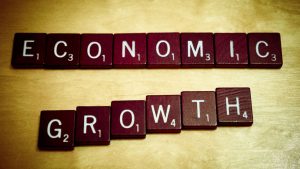By Innocent Obasi
Nigeria, Africa’s largest economy, may be caught unawares in the event of a global recession in 2023. This is true especially of the country’s energy sector, according to Chijioke Nwaozuzu, an energy economist and director, Emerald Energy Institute.
Nwaozuzu, who spoke exclusively to Business A.M. against the backdrop of an ongoing debate regarding the likelihood of a global recession next year, said if the recession happens, Nigeria’s energy sector would be caught napping.
Weighing in on the recession debate, Nwaozuzu said all things being equal, in the short to medium term, there are indications that the global economy may slip into economic recession by 2023.
“Historically, previous periods of economic recession had been preceded by periods of depression in global economic growth, rise in inflationary trend and consequently, tightening of monetary policies. Added to these challenges is the rising energy and food prices, which in part, may be attributed to the Russia-Ukraine war,” Nwaozuzu told Business A.M.
He also pointed to the rising inflationary trend in the US, which necessitated tightening of fiscal and monetary conditions in the country to curb increasing inflation, which, in turn, is expected to slow economic growth next year.
“Additionally, the reduced growth in the Chinese property sector as well as low economic output resulting from strict Covid-19 restrictions in major cities in China have ultimately affected the GDP prospects of the country. Similarly, the increasing energy prices in Europe are expected to hurt productive processes, and hence, the total output,” he said.
The energy economist said the USA, China and the Euro zone account for more than a third of global economic output, thus a decline in economic growth in these countries is expected to have a reverberatory impact on the global economy.
“Hence, as a result of the issues outlined above, the International Monetary Fund (IMF) thus forecasted that the global economic output (GDP) will decline from a projected 6.0 percent in 2021 to 3.2 percent in 2022 and then, dip to 2.9 percent by 2023,” he said.
He, however, said there was a need to be cautious when making projections about recession.
“For instance, changes in the Chinese economy, such as easing of strict Covid-19 restrictions, may prop up economic activities, and hence, total output. Also, if the world reaches a truce to end the war between Russia and Ukraine, that may change the dynamics of global productivity and output…and may also influence the rise in energy and food prices,” he said.
On whether Nigeria’s energy sector is prepared in the event of a global recession, Nwaozuzu said it is not, pointing to the gross inadequacy, inefficiency and inability of the country’s energy infrastructure to meet current energy demand despite the huge investment in the energy sector.
“For over a decade, the Nigerian energy system (power sector) was unable to generate more than 3.5GW of electricity. Worse still, the weak transmission systems, resulting in incessant grid failure and high transmission losses, limit the amount that could be transmitted from the generation plants. Therefore, Nigeria’s energy sector is not prepared in the event of a global recession by 2023,” he said.
Given this scenario, Nwaozuzu said Nigeria’s energy sector should not just be preparing for future recession, but should first strive to meet the current needs of the country, and then, in line with the direction of the global energy sector.
“There must be deliberate effort and investment to prepare the sector to transition in line with sustainable development objectives of the global energy industry,” Nwaozuzu said.
He advocated for part of the revenue from excess crude oil sales to be dedicated to investment in development of infrastructure for green energy integration into the grid, or, in some cases, decentralized grid systems.
“This will help businesses to cushion the impact of recession on access to huge funding, reduce the cost of energy utility bills as well as provide ample opportunity for those who may not be connected to the grid,” he said.






